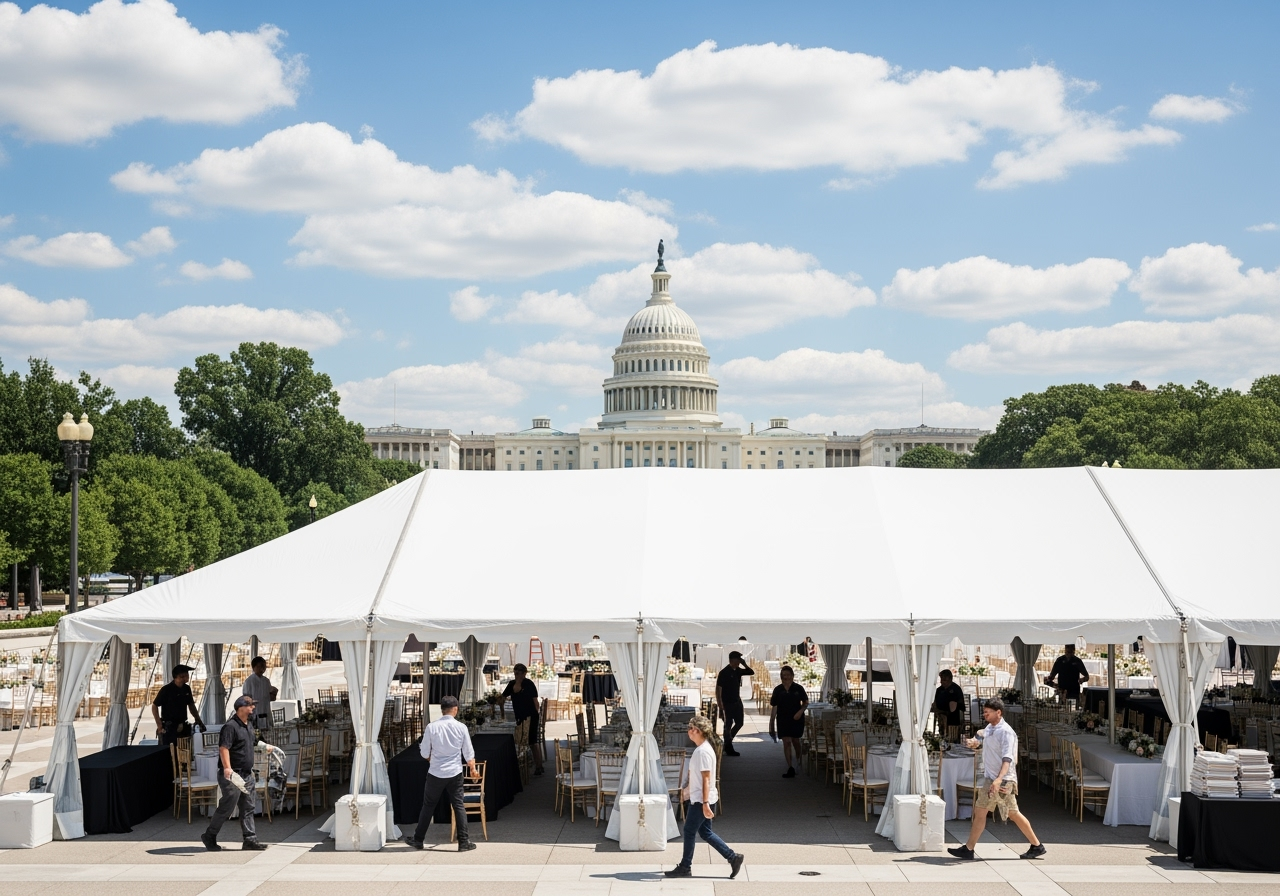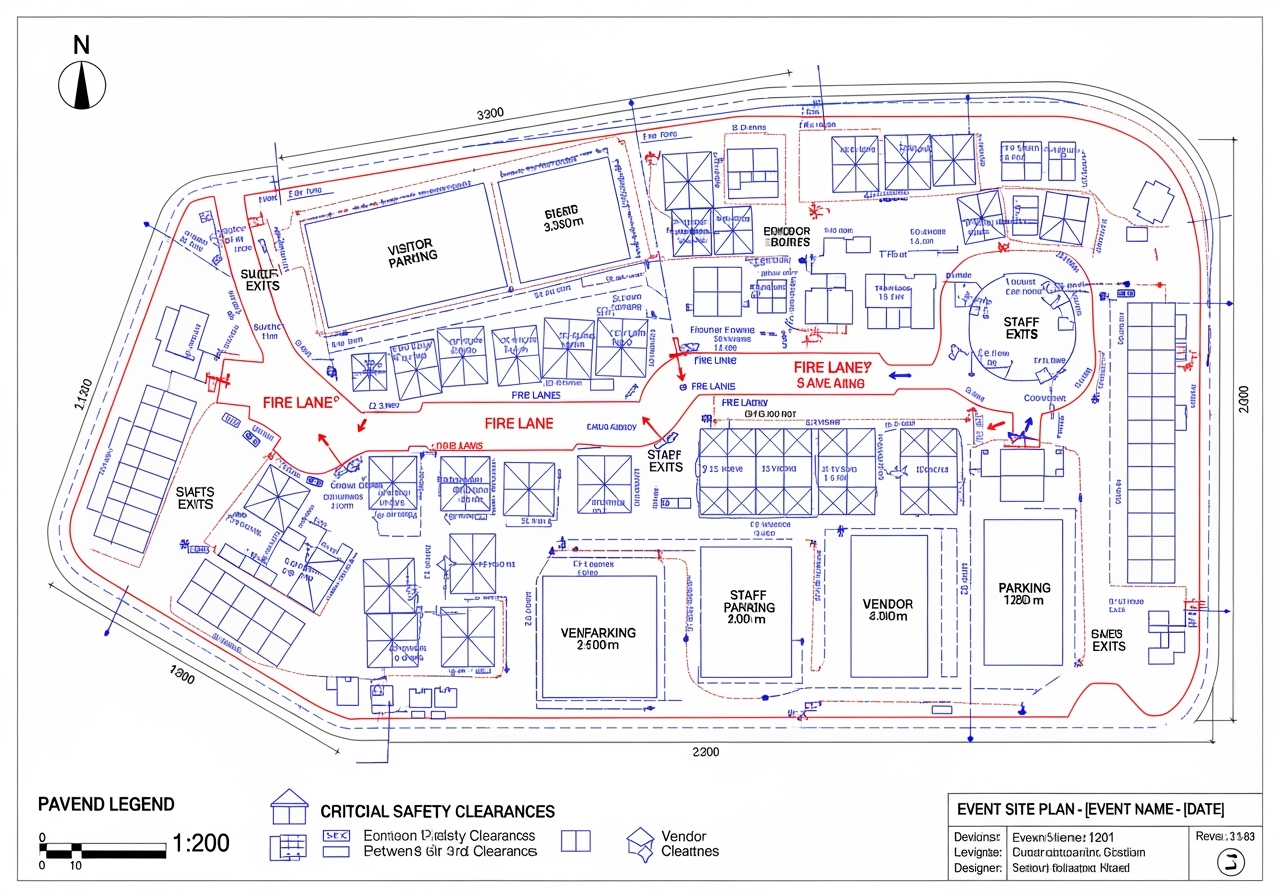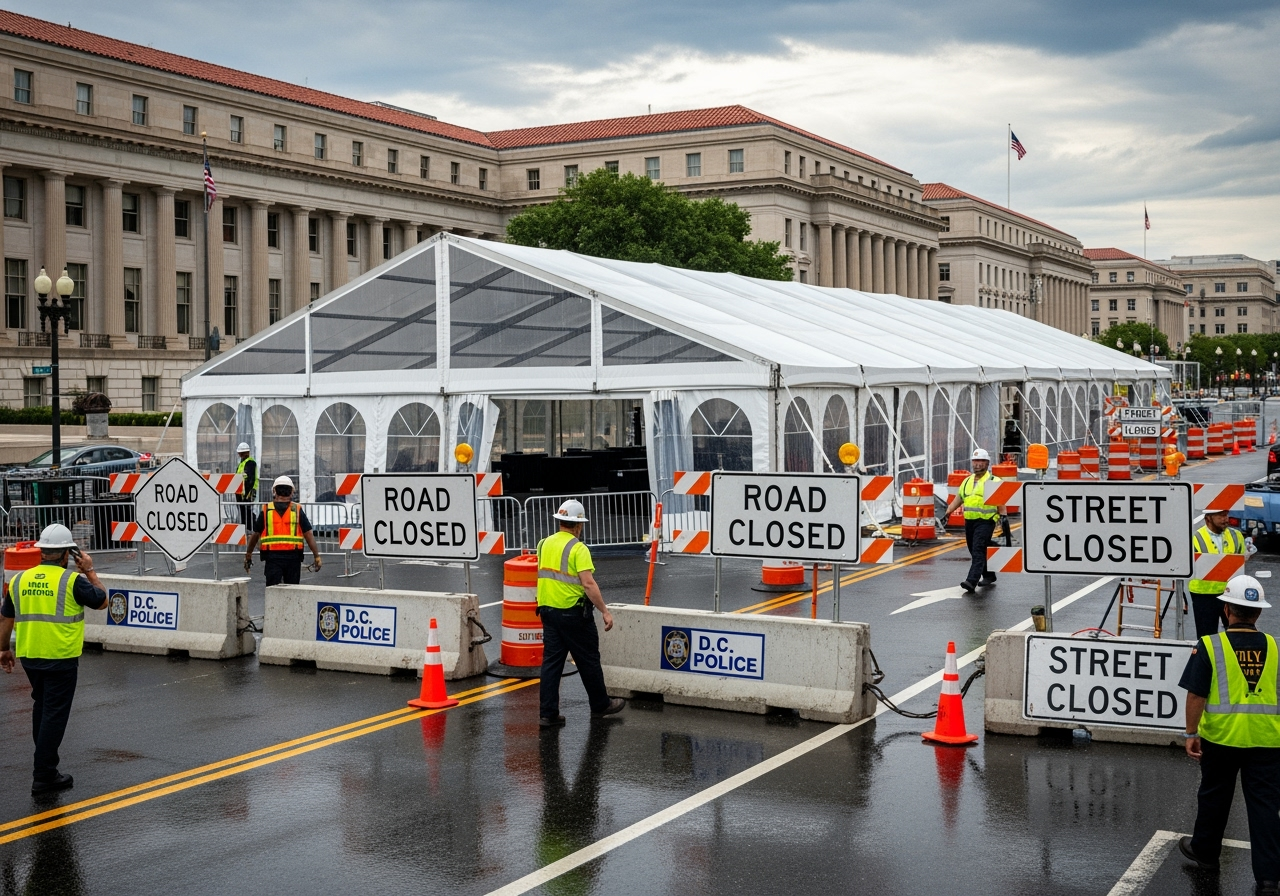Washington D.C. Tent Permit Requirements: Your Complete Guide to Temporary Structure Permits
Planning an outdoor event in Washington D.C.? Whether you're organizing a wedding reception, corporate gathering, festival, or community celebration, understanding tent permit requirements is crucial for a successful event. The permitting process becomes even more complex when your event involves public space, requiring coordination with multiple city agencies.
As a permit expediter with over 25 years of experience navigating D.C.'s regulatory landscape, I've helped countless clients secure tent permits efficiently. Here's your comprehensive guide to tent permit requirements in the nation's capital.
Understanding D.C. Tent Permit Basics
Washington D.C. requires permits for temporary structures, including tents, canopies, and other fabric structures used for public gatherings. The Department of Buildings (DOB) oversees tent permitting, but depending on your event's location and scope, you may need additional approvals from other agencies.
When Do You Need a Tent Permit?
You'll need a tent permit in D.C. if your temporary structure:
Exceeds 400 square feet in area
Will accommodate more than 50 people
Uses any type of heating or electrical equipment
Involves commercial food service
Is located on public property or right-of-way
Even smaller tents may require permits if they're part of a larger event requiring other city approvals.
Standard Tent Permit Requirements
Documentation and Plans
Structural Plans: You must submit detailed drawings showing:
Tent dimensions and layout
Anchoring and tie-down specifications
Exit locations and widths
Seating arrangements and capacity calculations
Fire lane access and emergency egress routes
Engineering Certification: For larger installations or when wind loads exceed standard specifications, you'll need stamped engineering drawings from a licensed professional engineer.
Site Plan: A comprehensive site plan must include:
Property boundaries and setbacks
Existing structures and utilities
Parking and traffic flow
Emergency vehicle access
Restroom facilities location
Safety and Code Compliance
Fire Safety Requirements:
Minimum 20-foot clearance from property lines
Adequate fire lane access (minimum 20 feet wide)
Proper exit capacity (one exit per 50 people, minimum two exits)
Fire extinguisher placement
Emergency lighting for evening events
Structural Safety:
Professional installation by certified tent contractors
Proper anchoring systems (stakes, weights, or concrete anchors)
Wind load calculations and weather contingency plans
Regular inspection during extended installations
Permit Fees and Timeline
Standard tent permit fees in D.C. range from $100 to $500, depending on tent size and complexity. Processing typically takes 10-15 business days, though complex installations may require additional review time.
Pro Tip: Submit your application at least 30 days before your event to allow for potential revisions and resubmissions.
Public Space Tent Permits: Additional Complexity
When your tent will be located on public property—including streets, sidewalks, parks, or other city-owned land—the permitting process becomes significantly more complex, requiring coordination with multiple agencies.
Primary Agencies Involved
Department of Transportation (DDOT): Required for any public right-of-way use, including:
Street closures or lane restrictions
Sidewalk occupancy
Parking meter removal or suspension
Traffic control plans
Department of Parks and Recreation (DPR): Necessary for events in:
Public parks and recreation areas
Playgrounds and athletic fields
Green spaces and community areas
Metropolitan Police Department (MPD): Required for:
Traffic control and security
Large gathering oversight
Emergency response coordination
Additional Public Space Requirements
Public Space Permit Application: This comprehensive application requires:
Detailed event description and timeline
Crowd management and security plans
Waste management and cleanup procedures
Insurance certificates (typically $1-2 million general liability)
Indemnification agreements
Traffic Impact Assessment: For events affecting vehicle or pedestrian traffic:
Traffic control device placement
Alternative route planning
Public notification requirements
Coordination with nearby businesses
Utility Coordination: Public space events often require:
Temporary electrical service coordination
Water and sewer access arrangements
Telecommunications and cable protection
Underground utility location services
Insurance and Bonding Requirements
Public space tent permits require substantial insurance coverage:
General liability: $1-2 million minimum
Property damage coverage
Additional insured endorsements naming the District
Workers' compensation for all vendors and staff
Some events may also require performance bonds to guarantee proper cleanup and restoration of public spaces.
Special Considerations and Common Challenges
Historic District Regulations
Events in D.C.'s historic districts face additional scrutiny:
Historic Preservation Review Board approval may be required
Restrictions on tent colors, materials, and anchoring methods
Enhanced documentation of temporary installation methods
Expedited removal requirements
Seasonal and Weather Considerations
D.C.'s climate presents unique challenges:
Winter installations require heating safety plans
Summer events need adequate ventilation specifications
Rain contingency plans and drainage considerations
Wind load calculations for D.C.'s urban wind patterns
Coordination Timeline
Successful public space tent permits require careful timing:
Initial applications: 45-60 days before event
Agency coordination meetings: 30-45 days prior
Final approvals and inspections: 7-14 days before
Setup and safety inspections: Day of installation
Common Permit Pitfalls to Avoid
Incomplete Applications: Missing documentation is the leading cause of permit delays. Ensure all required plans, certifications, and supporting documents are included with your initial submission.
Inadequate Lead Time: Rushing the permit process often results in rejections or expensive expedited processing fees. Plan ahead and submit applications well in advance.
Overlooking Utility Coordination: Failing to coordinate with utility companies can result in service disruptions or safety hazards during installation.
Insurance Gaps: Inadequate insurance coverage or missing endorsements can halt your event planning at the last minute.
Working with Professional Permit Expediters
Given the complexity of tent permitting, especially for public space events, many event organizers choose to work with professional permit expediters. We bring:
Established relationships with city agencies
Deep knowledge of current regulations and requirements
Experience navigating complex multi-agency approvals
Ability to expedite processing and resolve issues quickly
Our typical tent permit timeline is 2-3 weeks faster than standard processing, and we maintain a 98% approval rate on initial submissions.
Conclusion
Tent permits in Washington D.C. require careful planning, detailed documentation, and often complex multi-agency coordination. Public space events add layers of complexity that can overwhelm even experienced event planners.
Success depends on understanding the requirements early, preparing comprehensive documentation, and allowing adequate time for the approval process. Whether you're planning an intimate gathering or a large-scale public event, proper permit planning ensures your event proceeds smoothly and safely.
Ready to streamline your tent permit process? Contact M.C.G. Permit Consultants at (202) 729-8272 for expert guidance on your next D.C. event. Our 25+ years of local permitting experience can help you navigate the complexities and secure approvals efficiently.
Remember: This guide provides general information about D.C. tent permit requirements. Specific requirements may vary based on your event's unique circumstances. Always consult with city agencies or a qualified permit expediter for project-specific guidance.




